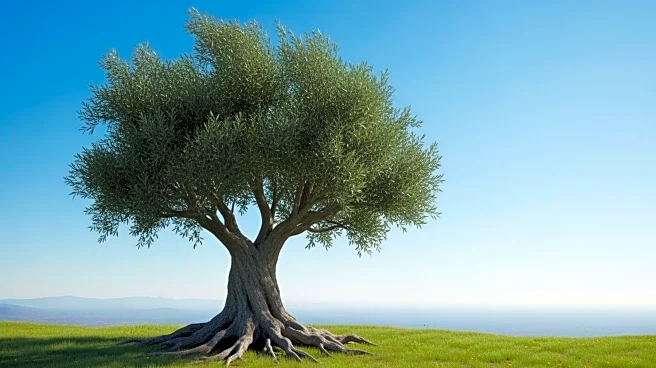What's Happening?
As the conflict in Gaza appears to be winding down, Israeli reservist families continue to face challenges. The ceasefire deal between Israel and Hamas has led to the return of 20 known living hostages
and the bodies of slain hostages. However, Israeli officials have warned that active fighting could resume if Hamas fails to comply with the terms of the ceasefire. The Jewish community, which has been united in support of the hostages, is now looking for ways to maintain solidarity as the immediate crisis abates. Rabbi Doron Peretz, speaking at the funeral of his son, Capt. Daniel Peretz, who was killed in the Oct. 7 attacks, emphasized the need for unity among Israelis of all political backgrounds. The Jewish community is preparing for upcoming events, including the World Zionist Congress and a contentious Election Day in the United States, which may test this unity.
Why It's Important?
The winding down of the Gaza conflict and the return of hostages mark a significant moment for Israeli reservist families and the broader Jewish community. The situation highlights the ongoing geopolitical tensions in the region and the potential for renewed conflict. The call for unity by Rabbi Doron Peretz underscores the importance of solidarity in overcoming political and ideological differences. This unity is crucial as the Jewish community faces upcoming challenges, such as the World Zionist Congress and U.S. elections, which could further divide opinions. The ability of the community to maintain cohesion in the face of these events will be critical for its future stability and influence.
What's Next?
In the coming weeks, Jewish leaders from the U.S. and around the world will gather in Israel for the World Zionist Congress, starting on October 28. This event will be followed by a significant Election Day in the United States, where candidates like Democratic mayoral candidate Zohran Mamdani in New York City have polarized the Jewish community. These events will test the unity of the Jewish community, as political and ideological differences come to the forefront. The outcomes of these gatherings and elections could have lasting impacts on Jewish communal relations and political strategies.
Beyond the Headlines
The recent developments in Gaza and the call for unity among the Jewish community may have deeper implications for global Jewish relations and identity. The emphasis on unity despite political differences could foster a more inclusive and resilient community. Additionally, the geopolitical dynamics in the region may influence international Jewish advocacy and policy-making, potentially affecting global perceptions and alliances. The ability to navigate these complexities will be crucial for the community's long-term cohesion and influence.










